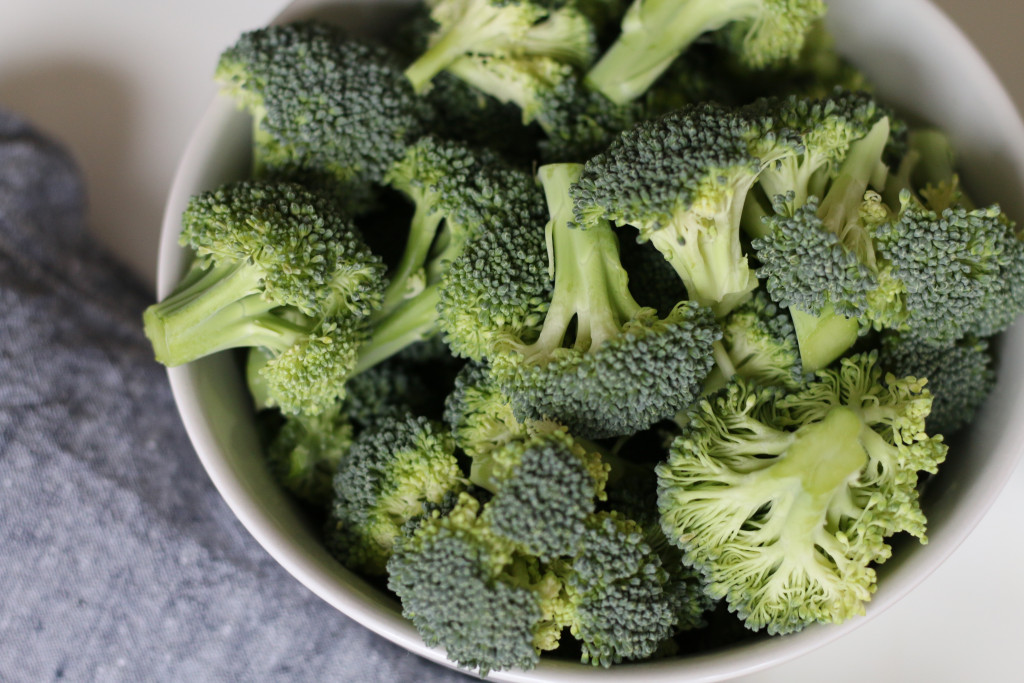
Why Am I Bloated?
Bloating is one of the top concerns that our clients at Being Functional Nutrition report. There is nothing worse than a bloated belly that feels extremely uncomfortable and prevents you from buttoning your jeans without pain.
Bloating is defined as a sensation of increased abdominal pressure, whereas distention indicates the increase in abdominal growth that makes it difficult to button your jeans. Bloating is often painful and can be debilitating.
It’s an incredibly common symptom and there are many possible causes. Let’s dive into them today!
Eating Too Quickly
We live in a culture that promotes eating quickly - from having to grab & go to eating in front of a screen, there are so many opportunities for it. When you eat too quickly, two things can happen that can contribute to bloating: 1. You don’t activate your parasympathetic nervous system–your state of rest and digest which can decrease your production of digestive enzymes; and 2. You bring in too much air which may make you feel bloated and gassy.
But with that said, there are ways to slow down. Continually practicing these techniques to eat more mindfully will help you get into a state of rest and digest, improve digestion and help decrease bloating.
- Put your fork down between bites. This allows you to chew more thoroughly, decreasing the air you take in.
- Take a moment for a deep breath and reflection with one of our favorite mantras to help you again, mindfully enjoy your meal.
- Chew each bite of food at least 30 times. This helps break the food down further and activate digestive secretions in the mouth that helps to break down your food.
Constipation
When we think of constipation, it’s generally regarded as a lower digestive symptom. But when you’re constipated it can actually cause upper digestive symptoms like bloating, gas and belching as well.
There are a number of reasons why someone may be constipated but for many, it can be a result of inadequate fiber and/or fluids. First off, there are two types of fiber: insoluble and soluble. Insoluble fiber is not well digested by the body - think of it as roughage which can be amazing for helping keep you regular down there (think: the skins of fruits and veggies). Soluble fiber, on the other hand, is digested within the body (specifically by the bacteria that live in our colon). This type of fiber is critical for GI health because it helps produce short chain fatty acids that provide fuel for our colon cells. The colon needs to have this fuel source to move waste. The soluble fiber forms a gel-like substance and helps to support regular bowels, binds to excess cholesterol, hormones and environmental pollutants and excretes them from the system (think: berries, psyllium, ground flax and chia, oats, beans, avocado).
You can eat all the fiber in the world, if you don’t drink enough water, you will be constipated. Water is crucial for helping to keep digestion moving. A good place to start for most is about 8 cups daily or half of your weight in fluid ounces. Movement is also key for preventing constipation - walking alone is phenomenal for digestion support.
Chronic Stress
The gut-brain connection is real!
Stress can wreak havoc on your digestion and gut microbiome. There is a reason for the term “nervous stomach” and that is because the sympathetic nervous system (fight or flight) directly opposes the parasympathetic nervous system (rest + digest). As the sympathetic nervous system is activated, the body puts digestion on hold, causing digestive upset in the long run. To compound this issue, stress has been shown to change the population of bacteria within the gut, reducing diversity. This issue can be somewhat self-perpetuating as reduced bacterial diversity can actually impact your ability to respond well to stressful events.
Irritable bowel syndrome (or IBS) symptoms have been shown to worsen with stress so treatment often includes stress-reducing techniques like deep breathing, meditation, movement, and gratitude journaling. Many of us are on overdrive and this approach can be life changing.
Bacterial Overgrowth
There are two types of bacterial overgrowth: Small Intestinal Bacterial Overgrowth (or SIBO) or too much of an imbalance of bacteria in the large intestine (colon). SIBO is a condition where you have bacteria that should be living in your colon, living in your small intestine (higher up in the digestive tract). Those bacteria digest foods and a byproduct of that digestion is gas. Because the digestion is occurring higher up in the digestive tract, two of the tell tale signs of SIBO are bloating and belching.
At Being Functional Nutrition, we test for bacterial overgrowth in our programs. If you do test positive, the type will determine the best next steps. FODMAP is an elimination diet that is instrumental in helping to heal the gut, as well as educating you on what foods trigger gastrointestinal (GI) symptoms for you as an individual. It’s important to work with an RD on this as it can be overwhelming and confusing without that guidance!
Eating Foods That Trigger Bloating
Typically some foods will cause more bloating for some people but this is highly individualized. Generally speaking, when there is an issue with certain foods, it will tell you that there is an underlying issue with the gut that needs to be healed so you can better tolerate more foods.
For some people, the foods that trigger bloating are gluten or dairy. For others, it is fermentable foods that are classified as FODMAPs. This is an acronym for fermentable oligosacchardies, disaccharides, monosaccharides, and polyols. They are short chain carbohydrates that are poorly absorbed in the small intestine. There is good research to show that low FODMAP diets can help resolve bloating because high FODMAP foods increase intestinal water and feed colonic bacteria that produce hydrogen and methane-causing gas.
A low FODMAP diet is not recommended long-term because decreasing FODMAP intake can lower short chain fatty acid production in the gut (which is the opposite of what you want for gut health).
Since there are a myriad of reasons why you may be experiencing bloating, it’s helpful to work with a Functional Medicine Registered Dietitian on our team to determine what may be the best next steps for you, as an individual. In the meantime, check out our new free guide on how to support Better Gut Health AND Blood Sugar Balance (the two are closely connected!).


